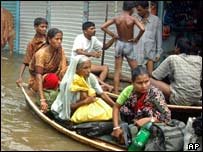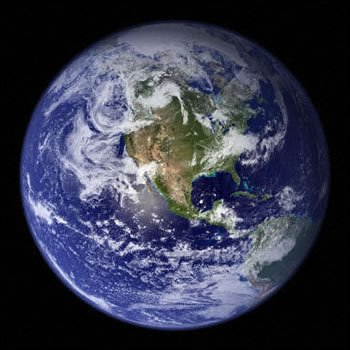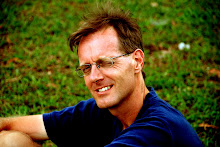John F Schumaker takes on the philosophers of greed
CHINESE philosopher Lao Tzu wrote 2,500 years ago: ‘There is no calamity greater than lavish desires, no greater guilt than discontentment and no greater disaster than greed.’ If he’s right, we’ve concocted a mighty sick world for ourselves. The infamous ‘greedy Eighties’ turned out to be a mere dress rehearsal for one of the most spectacular greed surges in history, with jaw-dropping degrees of stockmarket folly, corporate skulduggery, decadence, excess and high-octane narcissism. But, just as with the ‘lessons of the Eighties’, the ‘lessons of the late Nineties’ fall on deaf ears. The overriding lesson seems to be that greed is sweet for the economy.
As human beings continue to be reshaped by consumer culture into restless, dissatisfied, and all-desiring economic pawns, greed is being redefined as a virtue and a legitimate guiding principle for economic prosperity and general happiness. In the process, it is steadily eating away at the cornerstones of civilized society and undermining the visions, values and collective aspirations that made us strong.
However in his essay ‘The Virtue of Greed’, Walter Williams, an economics professor at George Mason University, maintains that without greed, our current economic and social structures would implode. He echoes the view of many economists in saying ‘greed produces preferable economic outcomes most times and under most conditions’. Many economic rationalists agree that greed’s proven superiority as the psychological launchpad for economic activity is due to its being the only consistent human motivation. Most alternatives have revolved around altruism, and failed. Even the respected economist Lester Thurlow, in an essay entitled ‘Market Crash Born of Greed’, holds that ‘altruism does not seem to be congruent with the way human beings are constructed. No one has been able to construct a society where communal altruism dominates individual greed.’
When we salute all-consuming America as the standout ‘growth engine’ of the world, we are in many ways paying tribute to the economic wonders of greed. William Dodson’s essay ‘A Culture of Greed’ chronicles America’s pre-eminence as a greed economy. He writes that the US enjoys a relative absence of constraints, including tax and labour constraints that would otherwise burden corporations with a sense of social responsibility, plus various system advantages and historical traditions, that together allow greed to flourish and be milked for purposes of profit and growth.
Jay Phelan, an economist, biologist, and co-author of Mean Genes, feels that greed could be our ultimate undoing as a species. Yet he theorizes that evolution programmed us to be greedy since greed locks us into discontent, which in turn keeps us motivated and itchy for change. In the past at least, this favoured survival. Conversely, he believes, it would be disastrous if humans lacked greed to the extent that they could achieve a genuine state of happiness or contentment. In Phelan’s view, this is because happy people tend not to do much, or crave much – poison for a modern consumer economy.
Recent years have seen the publication of a wide range of studies casting doubt on whether economic models aimed at increasing personal wealth and consumption are actually conducive to human happiness. In fact, the large-scale General Survey of the United States found that, from the early 1970s to the late 1990s, the percentage of people who are ‘very happy’ actually dropped from 34 per cent to 30 per cent, despite higher incomes, more possessions and improved living standards.
Such findings are being hailed by social critics as proof that the greed economy is toxic to well-being, and that it is hastening our slide into a collective state of ‘unhappy consciousness’, as sociologists call it. But they may be missing the main point if, indeed, greed and unhappiness are the fire in the belly of a consumer economy. There is little doubt that the cultural sanctification of greed is creating a deep existential void that cannot be filled – whatever the degree of material indulgence, personal achievement or private gratification. Despite that, this ‘Empty Self’ of modern life, with its insatiability and alienation, may actually be what is necessary to power greed economics.
The eminent sociologist Zygmunt Bauman writes in an insightful essay, ‘The Self in a Consumer Society’, that greed itself is changing in order to better serve consumer capitalism. In the past, says Bauman, greed was not constant because people’s desires were still attached to needs and objects, as well as a credible social world, which meant they tended to pause from time to time in satisfaction or reflection. Over time, however, consumer culture has upped ‘consumptive capacity’ by honing its members to be immune to satisfaction, and thus immediately ready to desire the next thing that comes along. Of this, Bauman says that desire no longer desires satisfaction. In the modern age, ‘desire desires desire’, which is the basis for our new ‘constant greed’.
Research is starting to show that we have come to see ourselves as incorrigibly greedy by nature. According to one survey, nearly 90 per cent of people agree with the statement ‘Humans always want more, it is part of human nature’. But in truth, a society’s culture determines the extent to which our propensity for greed is activated or suppressed.
Judith Ann Johnson’s groundbreaking 1999 doctoral dissertation drew the connections between maximal greed and the cultural combination of capitalism, materialism, hyper-competition and discrimination. It is the presence of all these factors that makes greed what she calls an overarching ‘map of Western consciousness’.
Another of Johnson’s key findings is that greed operates best at very low levels of wisdom, awareness and understanding. It may be that the relentless dumbing down of consumer society is a valuable cultural strategy that paves the way to ever more efficient greed economics.
One specific way that greed sparks the modern economy is by suppressing savings rates via unending craving for all things consumable, which translates into frivolous spending and a hearty appetite for credit. There is an economic formula, made famous by financial legend and greed guru Leon Levy, that states: ‘For every 1 per cent rise in savings, corporate profits fall by 11 per cent.’ This means, for example, if greed-inspired overspending in the US would ease to the extent that savings rose to a modest 5 per cent from the current subzero mark, corporate profits would fall by 50 per cent or more.
Greed is the backbone of the prevailing ‘philosophy of more’ that supports the profitable ‘big is beautiful’ trend (as with ‘mini-mansions’, four-wheel drive SUVs, and so on) as well as the worldwide ‘investment-driven’ property boom/ bubble. The gluttonous aspect of greed-mindedness carries further short-term advantages by way of increased tendencies toward overconsumption, waste, premature disposal and replacement, needless upgrading and general disregard for conservation.
Greed drives entrepreneurial investment. It also facilitates the manufacture and commercial exploitation of false needs. It is no wonder that greed enthusiasts insist that nothing can beat greed when it comes to the economy, and that we should not give up on it as the epicentre of economic and social life, or fixate on burst stock-market bubbles, or sticky- fingered Enrons and Worldcoms.
Peter Catsimpiris, co-founder of the pro-capitalist Laissez Faire League, even scolds us in his essay ‘In Defense of Greed’ for stunting our children’s greed potential with commands such as ‘Give some to the other children’. To unleash the power of greed, he says, we should teach them that greed is the great hope of humanity from which can spring boundless prosperity, progress and innovation.
But others point out how greed, and its ‘dying with the most toys’ cultural hero system, is infusing children around the globe with selfdestructive degrees of materialism, avarice and self-preoccupation. The commercialization of childhood is being led by greedy corporations that put profits before social responsibility and children’s health. Over the past two decades, for example, aggressive advertising by the soft-drink industry has seen high-sugar soft-drink consumption double in children aged 6 to 11, a major contributor to the worsening epidemic of childhood obesity and diabetes. Today, with greed still their main moral compass, these companies market an ever-expanding array of caffeinated drinks to children that have health experts worrying about a new wave of youth addiction.
The globalization of greed is being facilitated by agencies such as the World Trade Organization, whose mission it is to eliminate obstacles to the proliferation of transnational corporate activity, but which in effect merely pumps up corporate profit sheets at the expense of workers’ rights, local environments and communities.
The notion that individual greed can serve the common good has wormed its way into political philosophies, even some with long-standing socialistic leanings. The ultimate expression of this illogic can be seen in the current US administration of George W Bush, which pins most of its hopes on a government-by-greed strategy. But, as antigreed psychologist Julian Edney argues, there is a fundamental flaw in this method as evidenced most conspicuously in the ever-widening gap between rich and poor: ‘Greed demolishes equity. Simply, you cannot have both unrestrained greed and equality.’
According to Edney, the celebration of greed has spawned a ‘schizophrenic haze’ that numbs society to the tragic and dangerous consequences of the present ‘apartheid economy’. In the end, unchecked greed erodes freedom, undermines the social fabric and is an undemocratic force.
More and more mental-health professionals are saying that greed is not nearly as good for people as it is for economies, with some warning that greed is beginning to overwhelm conscience, reason, compassion, love, family bonds and community. Moreover, existing levels of constant greed are causing clinical depression and despair in many people.
The term ‘pleonexia’ is being used to diagnose pathological greed that can contribute to a host of ills, including stress, burnout, gambling addictions, compulsive shopping, ‘affluenza’ and loss of moral grounding.
American psychologist and greed treatment specialist David Farrugia, sees greed as a mistaken, empty and shortsighted goal that contains many seeds of destruction, in particular those that destroy families and marriages. Beyond that, in his article ‘Selfishness, Greed, and Counseling’, a chronic orientation toward greed has been shown to result in inflexibility, anxiety and diminished reality testing, all of which tarnish a person’s overall experience of life.
Extremes of greed may even make a greed economy sick. For instance, Leon Levy feels that the greed factor in the US has actually gone too far in subduing savings and raising debt, and that consumption and the economy generally will be seriously hampered for some time to come.
Unchecked greed can also be so harmful to the environment that it comes back to haunt the economy. In fact, the single largest hitch with greed culture and greed economics is the long-term crushing effects these have on the planet. That is a monumental problem that none of today’s greed enthusiasts have been able to solve.
John F Schumaker is an American-born clinical psychologist now living in Christchurch, New Zealand. His latest book is The Age of Insanity.
Published in New Internationalist - Issue 369 - July 2004









